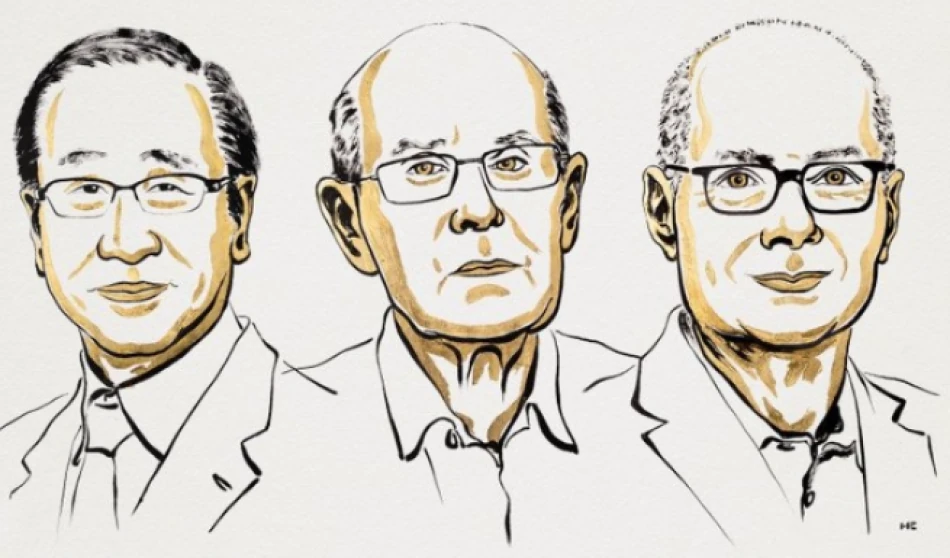
Pioneering Trio Awarded Nobel Prize in Chemistry for Groundbreaking Discoveries
Three scientists won the 2025 Nobel Prize in Chemistry for developing metal-organic frameworks, materials that could help solve major environmental and industrial challenges. Susumu Kitagawa from Japan, Richard Robson from Australia, and Omar Yaghi from the United States will share the $1.2 million prize for their groundbreaking work on these highly porous materials.
The Royal Swedish Academy of Sciences announced the winners on Wednesday, recognizing decades of research that created entirely new types of materials. Metal-organic frameworks, or MOFs, are crystalline structures that combine metal ions with organic molecules to create materials with enormous internal surface areas.
Here's why this matters: these materials can capture and store gases more efficiently than almost anything else we know. A single gram of some MOFs has the internal surface area of a football field. That makes them incredibly useful for capturing carbon dioxide from the atmosphere, storing hydrogen for clean energy, and purifying water.
The three scientists approached the problem from different angles but their work built on each other. Kitagawa focused on understanding how these frameworks form and stay stable. Robson developed new ways to connect the metal and organic components. Yaghi created systematic methods for designing MOFs with specific properties for targeted applications.
The timing of this award reflects growing urgency around climate change and energy storage. Companies are already testing MOFs for industrial carbon capture, and researchers believe they could help make hydrogen fuel cells more practical by solving storage problems that have limited the technology for decades.
The $1.2 million prize money will be split equally among the three winners. But the real impact lies in how their work might help address some of the biggest technical challenges facing efforts to reduce greenhouse gas emissions and develop cleaner energy systems.
This recognition also highlights how international scientific collaboration drives major breakthroughs. The three winners worked across continents and decades to build the foundation for what could become essential technologies for environmental protection and sustainable energy.
Most Viewed News

 Sara Khaled
Sara Khaled






